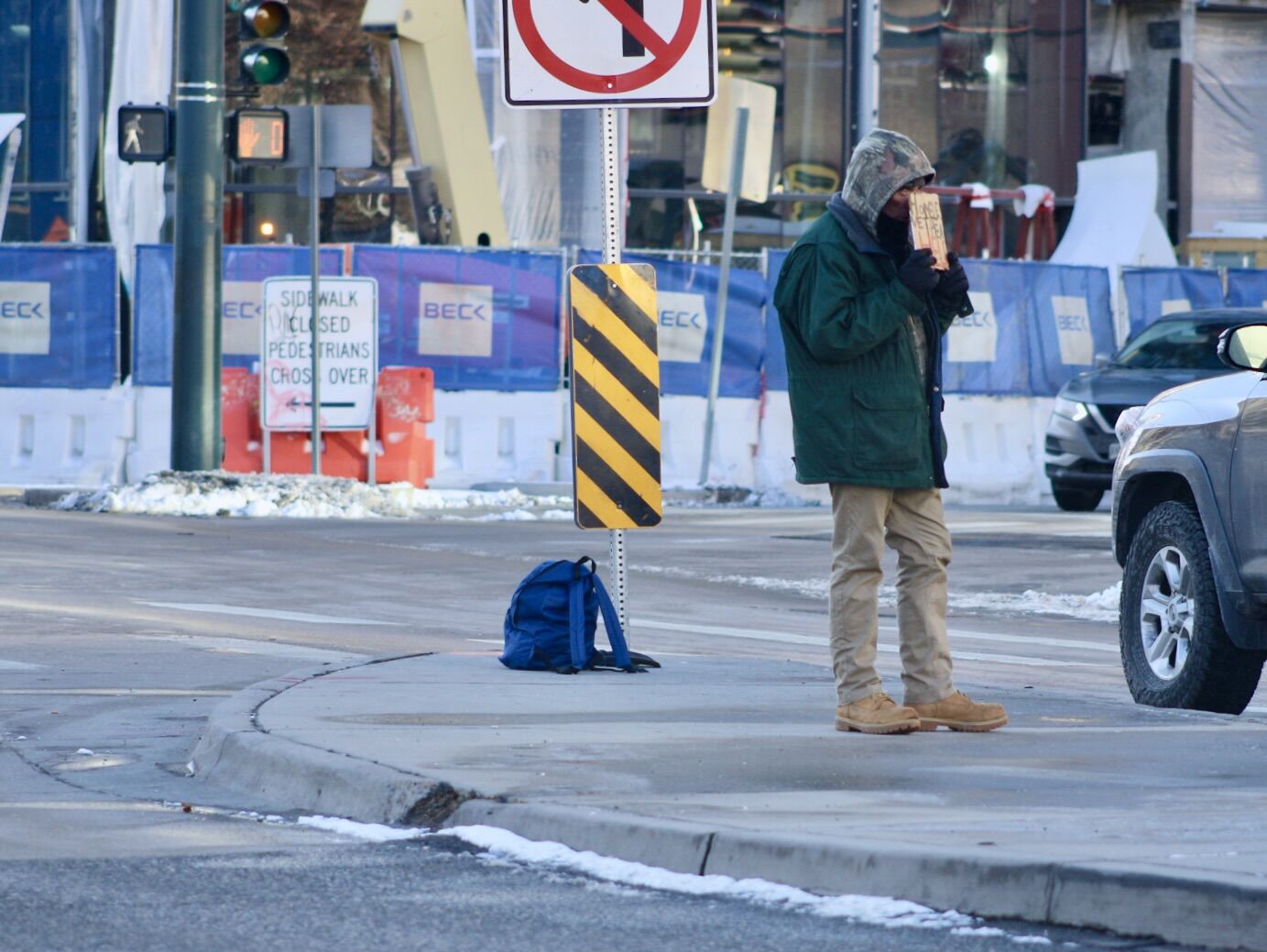Denver considers prohibiting homeless camp sweeps under 32 degrees
The Denver City Council on Monday held a first reading of a proposed ordinance that would prohibit homeless encampment sweeps when temperatures go below 32 degrees.
Councilmembers voted to delay consideration of an adjusted city temperature threshold until it can hold a final vote next Tuesday.
The ordinance is intended to avoid forcing homeless people to leave current housing situations in below freezing weather.
City officials said freezing temperatures would only delay the sweeping or closing of a homeless encampment.
The city may execute an encampment sweep or closure as long as the National Weather Service predicts 32 degrees or above for four hours straight the day of a planned encampment sweep, according to the proposed ordinance.
An encampment sweep would be delayed if the National Weather Service reports temperatures below 32 degrees in the previous 48 hours.
Encampment residents are normally given seven-day sweep notices.
If an encampment sweep gets delayed, another seven-day notice would be given to the encampment, according to a spokesperson from the Department of Public Safety.
Denver Mayor Mike Johnston enforced existing homeless camping bans at the start of his administration, after he promised to house 1,000 homeless people before the end of 2023.
The city closed 10 encampments while simultaneously providing temporary housing in hotels, leased units and “micro-communities.”
It cost the city $45 million in 2023 to house over 1,100 homeless people, and Johnston looks to spend another $50 million to do the same in 2024.
The proposed ordinance would require enforcement agencies to check the weather two days prior to any camping ban enforcements, according to at-large Councilmember Sarah Parady.
The goal is to “move people only during warming periods,” Parady said during Monday’s council meeting.
Parady, along with Councilmembers Shontel Lewis, Paul Kashmann and Council President Jamie Torres co-sponsored the ordinance proposal.
Residents and some who spoke during the council’s weekly public comment sessions over the past two months suggested creating a temperature threshold for encampment sweeps.
Large encampment cleanups can take eight hours on average, according to a Department of Transportation and Infrastructure spokesperson.
Some council members resisted the proposal.
“It is inhumane to leave anyone on the streets when it is under 32 degrees,” District 5 Councilmember Amanda Sawyer said in opposition.
Sawyer said that the language in the proposed ordinance doesn’t address the issues of an encampment sweep, such as lack of storage, rat infestations and people not being warm enough.
District 9 Councilmember Darrell Watson said the ordinance would complicate efforts for outreach teams going out to provide resources during cold weather spurts.
“I believe this will lead to more deaths out on the streets,” District 2 Councilmember Kevin Flynn said, opposing the proposed ordinance.
“Well over 100 died outside in 2023,” Denver Police Chief Ron Thomas told council members on Monday. “That equates to over two a week.”
A city presentation made to council members shows it costs $5 million a year for metro Denver hospitals to treat frostbite. The presentation estimates its costs $4.5 million to have 90 days of warming centers open. That translates to $50,000 a day for the city to open its warming shelters.
Johnston’s administration opened the ballrooms of the former DoubleTree hotel at 4040 Quebec St. and the former Best Western at 4595 Quebec St. to keep homeless people in from the cold. Both hotels already house hundreds of homeless people who came from swept encampments.
The hotels will accept homeless people from 7 p.m. to 7 a.m. every night until Monday, Jan. 15.
Buses will transfer people from St. Francis Center, 2323 Curtis St., between 6:30 and 9 p.m. through next Monday night to the Denver Navigation Campus and New Directions, and back to day shelter in the morning.
Denver will endure below freezing temperatures until at least Jan. 15, according to the National Weather Service.
Some council members said the proposed ordinance doesn’t include an answer for those homeless people left out on the streets.
“I want to make sure this is actually saving lives,” District 7 Councilmember Flor Alvidrez said. “I appreciate this being brought up but there are still a lot of questions.”






